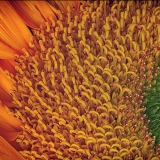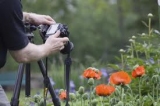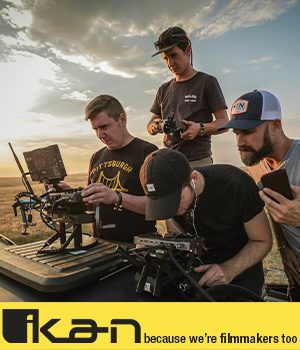- Forum
- General Discussion | Introductions | Off Topic Forum
- Photography General Discussion
- Low light performance more about the sensor or lens?
Low light performance more about the sensor or lens?
-
 Topic Author
Topic Author
- Crammer
- Photography Hooked
-
- Nikon D810 & D90
- Followers: 139
- Posts: 944
-
Points:
7875
Post #439839
-

- Screamin Scott
- Moderator
-
- Nikon D610, Nikon D7100, Nikon D300, Olympus OMD E-M5 MarkII, Olympus OM-D E-M10, Olympus Pen E-P3 + film SLR's
- Followers: 1384
- Posts: 6868
-
Points:
40292
Post #439841
-

- tganiats
- Lone Wolf
-
- Nikon D800
- Followers: 99
- Posts: 218
-
Points:
130
Post #439851
The lens is also complicated. One easy part of the lens is the maximum aperture. A faster lens (small f/stop number) will do better in low light (if that aperture is used). However, something I learned recently (and I'd love others to confirm) is that even at a fixed aperture, some lenses will transmit more light than others. Is that right?
-

- Screamin Scott
- Moderator
-
- Nikon D610, Nikon D7100, Nikon D300, Olympus OMD E-M5 MarkII, Olympus OM-D E-M10, Olympus Pen E-P3 + film SLR's
- Followers: 1384
- Posts: 6868
-
Points:
40292
Post #439854
en.wikipedia.org/wiki/F-number
-
 Topic Author
Topic Author
- Crammer
- Photography Hooked
-
- Nikon D810 & D90
- Followers: 139
- Posts: 944
-
Points:
7875
Post #439862
Screamin Scott wrote: Both will have an effect. In film days, it was about faster (and grainier results) film coupled with faster lenses. Now , with digital, it's about more sensitive sensors with faster lenses. Either a fast lens or a more sensitive sensor will get you better low light images, both are equally important...
Yeah the grain is what would kill you unless you were into hypering film, or buying it. And then not all films would cook really well for doing that. So hence fast glass, is and always will be king in the area of giving you more light to work with. But the beauty of the digital age is that you can shoot with much faster shutter speeds in lower light even with the lens stopped down to a greater extent. So the lens is not the primary performer for low light for some camera models. Though having fast glass does give you an advantage speed wise for the shutter end.
The larger the sensor does not mean that it is better at low light, it only means it has more surface are to gather what it sees, and more room for photo sites depending on size. The larger the photo site the more photos it can collect from any available light. But if you use too large of a photo site the resolution drops, but you can shoot in essentially the dark. Now they are going back to pixel packing, and losing some of it, but not as much as they have gained. It is a win for us in that we are now able to do thing we only dreamed we could do in the old days. I fell lucky to have seen it all change.
-
 Topic Author
Topic Author
- Crammer
- Photography Hooked
-
- Nikon D810 & D90
- Followers: 139
- Posts: 944
-
Points:
7875
-

- ThatNikonGuy
- Master of the Lens
-
- Nikon D810 & D300
- Followers: 299
- Posts: 1888
-
Points:
16120
Post #440065
-

- Stealthy Ninja
- Moderator
-
- Fuji X stuff and a 1DsIII for some reason
- Followers: 982
- Posts: 16300
-
Points:
6837
- Forum
- General Discussion | Introductions | Off Topic Forum
- Photography General Discussion
- Low light performance more about the sensor or lens?
Latest Reviews
The Olympus Pen E-P7 is an affordable micro four thirds mirrorless camera with 4K video capabilities, a 20.3MP sensor, and 121 focus points, making it a solid entry-level camera for beginners.
The Panasonic G9 II is a 25.2-megapixel micro four thirds camera with numerous features that make it punch out of its weight class, like 779 AF points, 5.8K video, and weather sealing.
The Fujifilm XT5 is a 40MP mirrorless camera capable of 6.2K video at 30p. With those specs, it’s an ideal choice for photographers needing a camera to pull double duty for imaging and video.
The Canon EOS R100 is an entry-level mirrorless camera introduced in 2023. But just because it’s an entry-level camera doesn’t mean it’s a bare-bones camera. Find out why in this review!
Forum Top Posters
-
1Scotty 8 posts
-
2TCav 4 posts
-
3CharleyL 4 posts
-
4Colorado Mike 3 posts
-
5Garbo 3 posts
-
6J Photo Man 3 posts
-
7Petroguy 2 posts
-
8Fess Walker 2 posts
-
9Hassner 2 posts
-
10MYoung 2 posts
Latest Articles
Auto white balance is a camera setting that adjusts the color temperature of your images automatically. It often works well, but you should know a few tips to fix problems it might cause, too.
The Canon EOS 5D Mark III might be more than a decade old, but it still has the chops to be a quality camera for photographers in 2024.
Starting a photography business can be a daunting task. There is a lot to do, and many mistakes can be made. This guide helps you minimize mistakes and maximize your success!
The Canon 6D Mark II might be an older DSLR, but that doesn’t mean it isn’t a good option for 2024. In fact, this budget-friendly camera is a powerhouse for stills and videos.
In this guide to the bokeh effect, you’ll learn what bokeh is and the factors involved in creating it. You’ll also explore some beautiful example images to spark your creativity with bokeh!
Upgrade your kit in 2024 with the best intermediate camera on the market! The question is, what camera fits the bill? We’ve got three top options for you to choose from in this buyer’s guide.
The best photography jobs right now are a mix of tried-and-true gigs like wedding photography and new jobs highlighting AI’s capabilities, travel, and videography.
The Olympus Pen E-P7 is an affordable micro four thirds mirrorless camera with 4K video capabilities, a 20.3MP sensor, and 121 focus points, making it a solid entry-level camera for beginners.
















